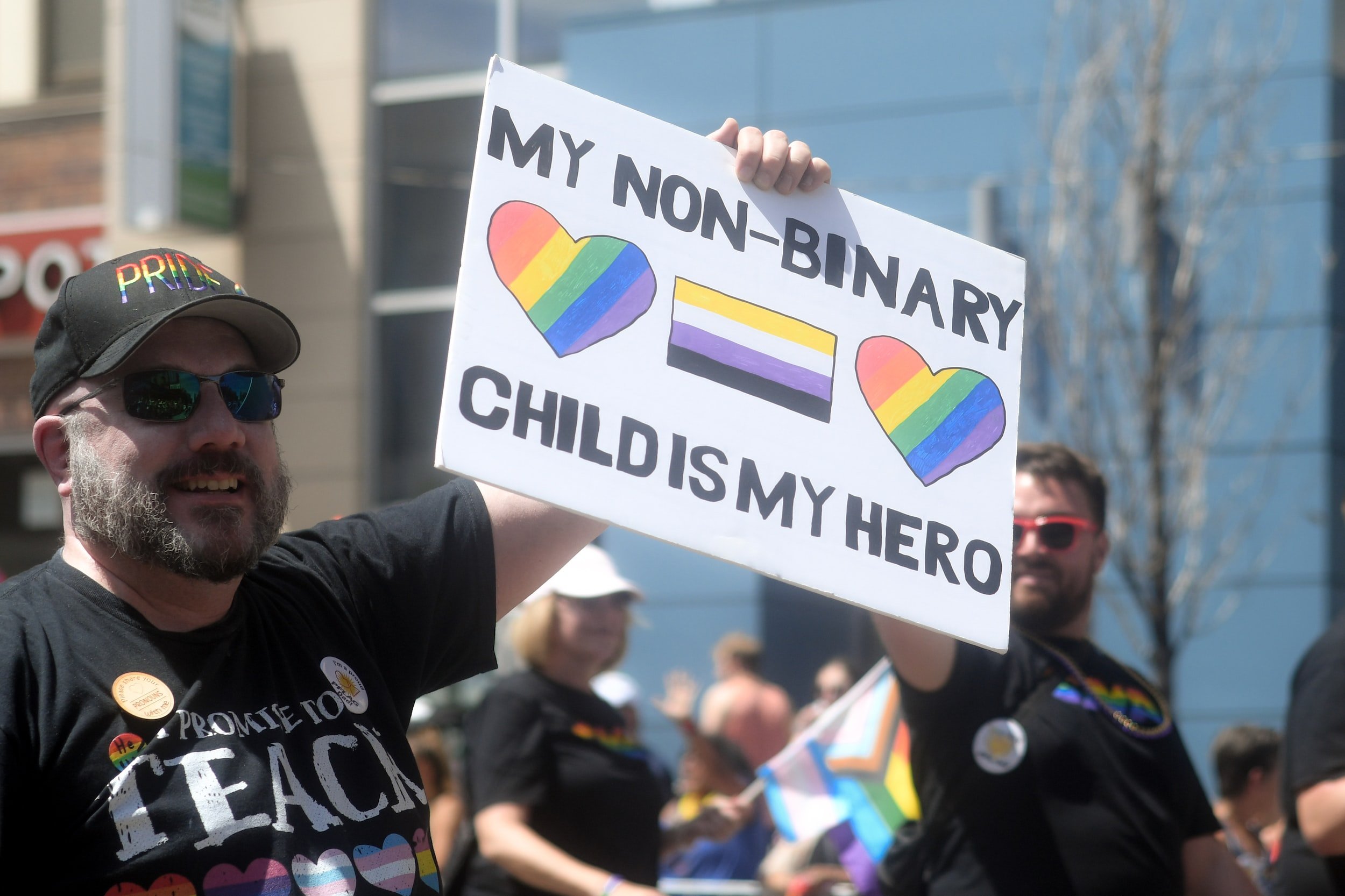Someone Just Told Me They’re Transgender. How Can I Support Them?
Pride month is right around the corner, but transgender, non-binary, and gender expansive folx need support, allyship, visibility, and representation throughout the entire year. This is especially true when someone has come out. Coming out can be a difficult, scary, vulnerable, and freeing experience for many people.
Someone coming out might be a surprise to you, but rest assured that your loved one has taken the time to deepen their relationship with their gender. Coming out means that they have decided to invite you in to get to know more about who they are. Treat this information as a gift that your loved one has offered to you.
Below are some tips to help you as an ally as you support someone who has come out to you.
How can I be a good ally to my loved one after they’ve come out to me?
(Really) listen and validate their feelings. The most important thing you can do is listen to them and validate their feelings. It can be difficult to come out and the person may be feeling a range of emotions.
Let them know that you hear them and that you support them. This means being present with them in the moment and acknowledging their courage in sharing their true identity with you. Try to avoid interrupting or dismissing what they're saying, and instead focus on being an active listener.
You might say something like, "Thank you for trusting me with this information. It takes a lot of strength to come out, and I'm here to support you."
Respect their identity. Language is an important aspect of how we understand and communicate gender identity. Language evolves as we evolve—and words matter.
Use the name and pronouns that they share with you. If they request that you stop using their birth name (also known as ‘dead-naming’, which is very harmful) or pronouns that don’t align with their identity, respect that request.
Studies have repeatedly shown that using the name and pronouns they’ve shared with you improves a person’s mental health outcomes and reduces the risk of suicide. This means that you may need to practice saying their name and pronouns on your own until you get it right.
If you make a mistake and misgender your loved one, correct yourself immediately and move on. If someone points out that you misgendered them, you may feel embarrassed or ashamed. In these situations, avoid making excuses or getting defensive. Instead, you can say, “Thank you for correcting me,” and move on.
Tip: When someone corrects you about their name or pronouns, never reply with a statement, “Ugh. It’s just so hard!” While it may be an adjustment for you to use your loved one’s affirming pronouns and name, it can make your loved one feel like they have to take care of your feelings—or worse—that they’re a burden.
If you're unsure of someone's pronouns, you can say, “Hi, my name is _____ and my pronouns are _____. What’s your name and what are your pronouns?” In general, it's also good practice to avoid gendered language where possible and to opt for more gender-neutral alternatives, such as “Hey friends!” instead of “Hey ladies!”.
Educate yourself. It’s important to educate yourself about the experiences of transgender, non-binary, and gender expansive people. It can be exhausting and feel invasive for your loved one to answer the questions you may have. To learn more, you can read articles and books, watch videos and documentaries, and attend workshops or support groups.
This will help you better understand their experiences and support them in a meaningful way as a committed ally. It will also help you unlearn any internalized transphobia or queerphobia you may have been taught throughout your life. We all have biases lurking beneath the surface and it’s our responsibility to identify what they are and work towards unlearning them on our own time.
Follow their lead. Everyone’s needs are different and it’s important to ask how you can support them. Let them know that you’re there for them and that you want to support them in any way you can. Above all, respect their decisions and choices, even if they don't align with your own beliefs or experiences. Remember—you don’t have to understand their experience to validate it.
Respect boundaries. Just because you may be a safe person and space, does not mean that all people and spaces are safe. Respect your friend or family member’s privacy about their coming out. Do not discuss their gender identity with others unless they have given you permission to do so.
Be patient. Coming out is a process that doesn’t just happen one time. Coming out often happens throughout a person’s life in many different ways. It can take time for the person to fully understand and embrace their identity and for those around them to adjust. Be patient and understanding, and let them know that you’re there for them no matter what.
Stand up for them—even when they’re not in the room. Transphobia and discrimination are unfortunately still prevalent in our society. If you hear someone making derogatory comments, dead-naming them, or using the wrong pronouns, speak up and let them know that it’s not okay. Stand up for the person and their identity, and make sure that they feel safe and supported.
Be sure to advocate for them by voting for lawmakers, officials, and other leaders who support care, policies, and practices that are gender-affirming.
With your support, your loved one can feel empowered to embrace who they truly are and thrive.
Ready to get started?
To learn more about gender, allyship, and more, check out some of the resources I have listed on my website here.





